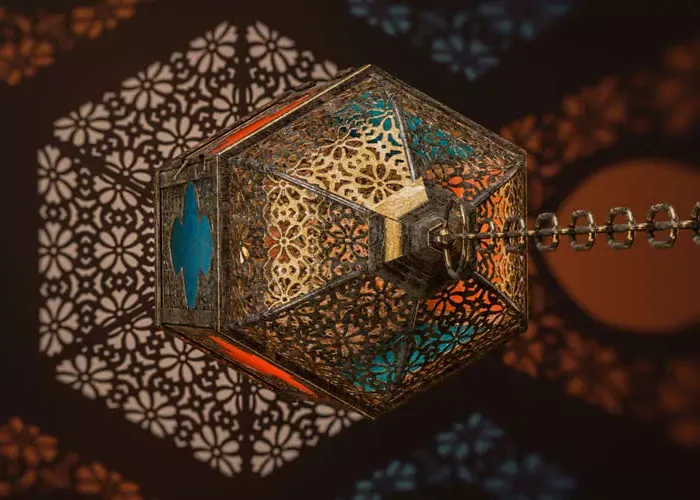Editorial – volume02 Issue06
Empowering Communities Through Faith and Knowledge
Introduction
As we step into another week filled with significant events, it is imperative to reflect on these occasions through the lens of Islamic teachings. Understanding these moments from an Islamic perspective enables us to lead ethical lives, educate our communities, and empower those around us to make informed decisions. This week, we explore three critical occasions among others: the birth anniversary of Hazrat Ali Akbar (AS) and Youth Day, the International Day of Women and Girls in Science, and the International Day for the Prevention of Violent Extremism. Each of these presents an opportunity for reflection, growth, and community action.
11th Sha’ban – Birth Anniversary of Hazrat Ali Akbar (AS) and Youth Day
Hazrat Ali Akbar (AS), the noble son of Imam Husayn (AS), is a symbol of youth, courage, and unwavering faith. His devotion to truth and righteousness, even in the face of great adversity, sets an example for young Muslims today. As we commemorate his birth, it is an opportunity to highlight the role of youth in shaping the future of the Muslim community. Islam places immense value on young people as the architects of a just and moral society.
The Qur’an states:
وَإِنَّهُمْ فِتْيَةٌ آمَنُوا بِرَبِّهِمْ وَزِدْنَاهُمْ هُدًى
“Indeed, they were youths who believed in their Lord, and We increased them in guidance.” (Surah Al-Kahf 18:13)
Message for Muslims in the West: Young Muslims today face numerous challenges, from identity struggles to societal pressures. The example of Hazrat Ali Akbar (AS) encourages them to uphold their values, embrace their faith, and contribute positively to society with courage and conviction.
Practical Challenge: Organise a youth gathering or discussion circle focused on leadership, moral courage, and staying true to Islamic principles in contemporary society.
11th February – International Day of Women and Girls in Science
Education and knowledge are fundamental in Islam, and women’s contributions to science and innovation have always been acknowledged. Islam emphasises the pursuit of knowledge for both men and women in all circumstances, as Imam Sadeq (AS) said:
طَلَبُ اَلْعِلْمِ فَرِيضَةٌ فِي كُلِّ حَالٍ
“ Seeking knowledge is an obligation in every circumstance.” (Bohar-al-Anwar, 1, 172)
Throughout history, Muslim women have made remarkable contributions to science, medicine, and education. Figures like Fatima al-Fihri, who founded the world’s first university in 859 CE, Sayyida Nafisa – a descendant of Imam Hasan (AS) – who taught many students, including the famous Sunni scholar Imam al-Shafi’I, and Sutayta al-Mahmali who was an outstanding mathematician, exemplify this. Additionally, contemporary Muslim women continue to make significant strides in STEM fields. Maryam Mirzakhani, an Iranian mathematician, became the first woman to receive the Fields Medal, the highest honour in mathematics. Ayatollah Zohreh Sefati co-founded a school for women in Qom, which later became known as Maktab-e Tawhid. Rana Dajani is a Jordanian molecular biologist and member of the United Nations’ Jordanian Women’s Advisory Council. She has published in several peer-reviewed and in Science and Nature journals. These women are testaments to the enduring legacy of Muslim women in science.
Message for Muslims in the West: On this International Day of Women and Girls in Science, we celebrate the incredible contributions of Muslim women and girls in the scientific world. From pioneers of the past to trailblazers today, their work is shaping the future and challenging stereotypes. Let’s honour their achievements and continue to provide support, opportunities, and encouragement for them to thrive in every scientific field. Together, we can empower Muslim women and girls to lead the way in innovation, research, and discovery.
Practical Challenge: Highlight the achievements of Muslim women in science within your community and encourage young girls to explore STEM fields through mentorship and support networks.
12th February – International Day for the Prevention of Violent Extremism
Islam is a religion of peace, and the Qur’an explicitly condemns violence and extremism. Islam encourages wisdom, dialogue, and justice in addressing conflicts.
The Qur’an states:
وَلَا يَجْرِمَنَّكُمْ شَنَآنُ قَوْمٍ عَلَى أَلَّا تَعْدِلُوا اعْدِلُوا هُوَ أَقْرَبُ لِلتَّقْوَى
“And do not let the hatred of a people prevent you from being just. Be just; that is nearer to righteousness.” (Surah Al-Ma’idah 5:8)
Extremism distorts the true message of Islam and creates divisions within communities. As Muslims, it is our duty to actively promote peace, social harmony, and understanding. This day serves as a reminder to challenge narratives of hate and foster meaningful dialogue.
Message for Muslims in the West: Muslim communities often face unjust scrutiny and stereotyping. It is essential to engage in interfaith and community dialogues to counter misconceptions and promote the true essence of Islam.
Practical Challenge: Initiate or participate in community-led peacebuilding efforts, interfaith discussions, or educational workshops to promote understanding and tolerance.
editor's pick
news via inbox
Subscribe to the newsletter.




